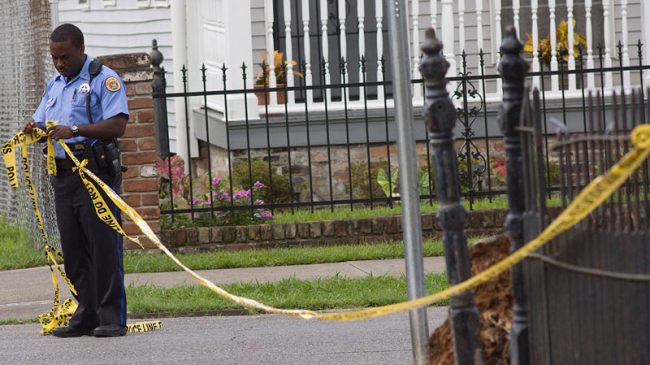California’s Attorney General reports that “all violent crime categories experienced double-digit decreases in number and rate from 2008 to 2013” and “from 2012 to 2013, the violent crime rate per 100,000 decreased 6.5 percent, reaching its lowest level since 1967.”
Despite those facts, 62 percent of Americans say children today face more threats to their physical safety than previous generations, according to the national Reason-Rupe poll.
Approximately 83 percent of Americans want a law mandating that 6-year-olds be supervised at public parks. In fact, 68 percent of Americans say there should be a law requiring 9-year-old children to be supervised at public parks, while only 28 percent think parents should be allowed to decide if their own 9-year-olds can play at a park without supervision.
A slim majority of Americans, 53 percent, say it is okay for 12-year-old children to play at a public park without adult supervision. Women are 12 points more likely than men to say 12-year-olds should be supervised at public parks. And majorities of households with incomes less than $30,000 a year (56 percent) and Americans with a high school education or less (52 percent) think government should require 12-year-olds to be under supervision. In contrast, nearly seven in 10 of those making more than $90,000 a year, and 67 percent of college graduates say supervision isn’t necessary.
Californians and other Americans living in the western U.S. tend to take a slightly more hands-off approach, while Southerners tend to prefer more parental supervision, even when accounting for other demographics. Six in 10 Westerners, but only 49 percent of Southerners, say 12-year-olds should be allowed to play at public parks without supervision.
The most influential predictor of attitudes toward parental supervision at public parks, by a considerable margin, is Americans’ beliefs about the role of government. Those who want a strong government to promote traditional values and solve society’s economic problems are significantly more likely to say children should be supervised at public parks. It may very well be the case that a preference for paternalistic parenting is related to desire for paternalistic government.
While our parents and grandparents as children picked up milk at the grocery store for their mothers and learned trades as preteens, Americans today think kids need to be older before taking on such responsibilities. When Reason-Rupe asked how old children should be before they are allowed to walk to and from school without an adult, or mow the lawn, or cook food for themselves, the average age was 12.
What about playing in front of their own house unsupervised or sitting in the car for five minutes on a cool day while their parents are in a store? Americans said kids shouldn’t do those things until they are 11 years old.
In fact, Americans told Reason-Rupe that today’s kids need to be 13 years old before staying home alone. And kids should be 14 years old before they can babysit other children.
Protective parenting practices that delay responsibility have been found to increase entitlement and lower self-efficacy among young adults. “These parents are generating a child who really sees him or herself as the center of the universe. Being catered to becomes a norm for these children,” said the University of Arizona’s Chris Segrin, author of papers examining the negative effects of overparenting. “They are raising kids with low self-efficacy and high entitlement, which is a near lethal combination of personality traits.”
Clearly, there are real threats to the safety of our children. And there are certainly instances of child abuse and neglect in which we have a responsibility to intervene. Nevertheless, we must take greater initiative to delineate real risks from exaggerated risks.
In efforts to do good we may end up hurting the children we’re trying to help.
Emily Ekins is director of polling at Reason Foundation. This article originally appeared in The Press Enterprise.
